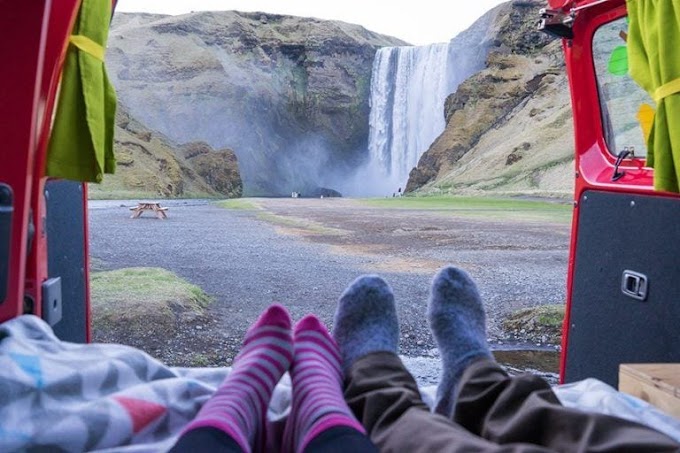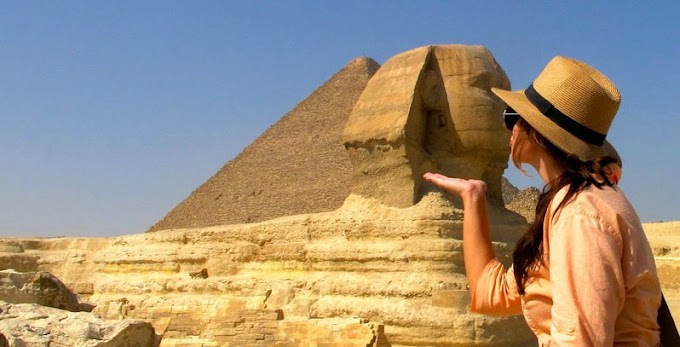When I was growing up, my family didn’t “travel.” Like most modern, middle-class American families, if we went anywhere, it was because we were on vacation — short leisure trips with a fixed start and end, tied to the calendar of the working year, centered more often than not around visiting relatives: to Philadelphia to see my cousins or long road trips to see my grandmother in Florida.
Long car rides, nights at big chain hotels, and visits to theme parks were par for the course.
When I was about eleven (and too young to really enjoy it), we went to Bermuda for a couple of days. And, when I was sixteen, we did take a cruise.
But that was the craziest we ever got.
We “traveled” like middle-class Americans were supposed to. There were no backpacking trips, camping excursions, or jaunts to exotic destinations for us. My friends and their families followed the same routine. They vacationed the way society told them to.
In my mind, this was travel: a planned pause in the rhythm of corporate life, the adult equivalent of being on school break. You worked hard, then treated yourself to an all-inclusive destination a short flight away, or spent your time away from the office in some relative’s living room. You took just enough time off that you could muster the strength to go to work every ordinary weekday for decades, until it was time for that fabled retirement when life could truly begin.
Travel was a time-consuming undertaking you did when you were older, retired, or rich. Or when you were a broke college student and didn’t have a care in the world. That was when you could really see the world and get to understand it.
It wasn’t for the rest of us adults. We had to work. We only had enough time for a vacation.
Growing up in my little vacation bubble, I never realized there was a world beyond hotels, cruises, resorts, and giant bus tours that shuttle you from attraction to attraction. As they say, you don’t know what you don’t know.
So when I first met backpackers on a trip to Thailand, I was shocked. Learning about the backpacking culture on that trip created a paradigm shift in my worldview. I suddenly realized there was more than my bubble. It was like I was seeing life for the first time.
So I came home, quit my job, and went traveling.
I thought of myself as a traveler: an intrepid person peeling back the layers of the world in hopes of getting a deeper understanding of my place in it while simultaneously meeting cool people, having exciting experiences, and getting a little drunk along the way.
One of the most frequently asked questions on my book tour was about maximizing your trip. “I don’t have ten years to be a nomad, Matt. What can I do in just a week?”
Movies, media, and pop culture have taught us that vacations are what you do when you’re a working adult.
Travel is what you do when you have time.
Who can be an intrepid traveler when you only have a week to see a city and a long list of things to see?
When someone tells you “We’re going traveling”, you tend to think of it as something with time. We’ve been programmed to think that way.
Yet, as I mention in my book, travel isn’t really about a length of time. It is a way of thinking.
Whether two days or two weeks or two years, travel is a state of mind.
I define “travel” as including some exploration, digging below the surface. It is external: learning about the world and the people in it. It is also internal: trying new things and pushing yourself out of your comfort zone. It is also about getting lost or confused and finding your way out.
That can happen in a day, a month, a week, or a year.
Don’t think of travel as something that necessarily takes longer than a vacation.
Don’t think of it as something that only certain demographics can do.
Don’t think of it as something that requires superhuman powers or energy.
Think of it as something you can do when you put yourself out there, try to meet new people, break out of your comfort zone, and challenge yourself.
If you’re heading off to Paris and want really learn about the city, don’t think “Well, we only have a week. There’s so much to do. We’ll learn more when we come back.”
Your trip is your own. Do what you want.
Throw away the to do list. Break away from the crowds that line the Louvre and the buses that drop you off along a predetermined route. Forget all that. There’s no such thing as must-see anyway.
Think to yourself “What do I do here if I had all the time in the world? How would I visit this city?”
Then do that.
Sign up for a new activity like a cooking class or a weird walking tour. Attend a local meet-up. Use the sharing economy to meet locals. Leave your phone at hotel, get off social media, and go for a walk. Eat at the local market.
Let the days fill themselves in.
Travel is the most magical when you let the days just unfold. It’s the random, unplanned encounters we all remember most.
That can happen no matter how long your trip is.
There’s nothing wrong with a vacation. We all need time to unwind. But let’s put aside this notion that travel requires more time than we get. It doesn’t.
Travel is not about time. It’s about mindset.
So take the traveler’s mindset with you on your next trip.
Put down your “must see” checklist, go with the flow, try new things, meet new people, and push yourself to new limits.









0 Comments